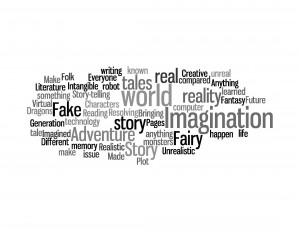Glossary Assignment: Assigned 1/28; Due: weekly throughout the semester
Throughout the semester, we will place a great deal of importance on defining words, both terminology that will help us describe, analyze, and discuss our readings and vocabulary that will help us better understand the material we encounter. Each week, you will choose a word and write a blog post (need help?) in which you do the following:
- include the word as the title of the post
- provide the word’s part of speech (noun, verb, adjective, etc)
- define it–make sure you’re using the most appropriate definition, which might not be the first one
- cite the source of your definition–I recommend Merriam-Webster’s dictionary, although you might need to consult a different kind of dictionary
- identify where you encountered the word (specify the specific page of a particular reading, date of the class discussion, title of the handout, etc)
- explain what you understand about the passage now that you understand the word
- if you are defining a term, provide an example based on our readings.
- (optional) include links and images that help your classmates understand the word or the context
- choose the category Glossary in the right sidebar when you write a new post
- add tags to your post that reflect the topic you wrote about
- add the word to the alphabetized list in the Glossary Index document
These posts will contribute to a shared glossary for our course, available from the blog menu. If you have any questions, please feel free to contact me, or to ask me in class.





